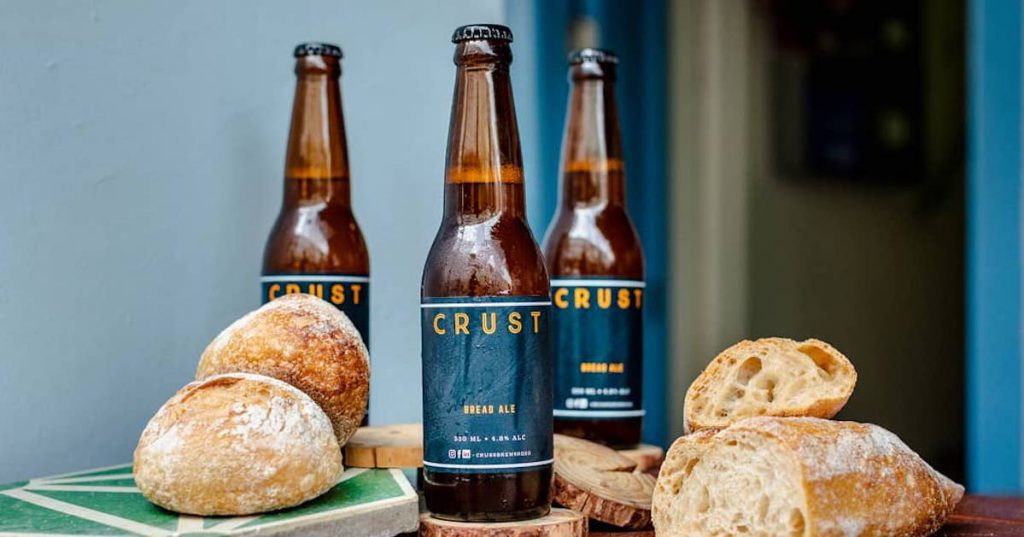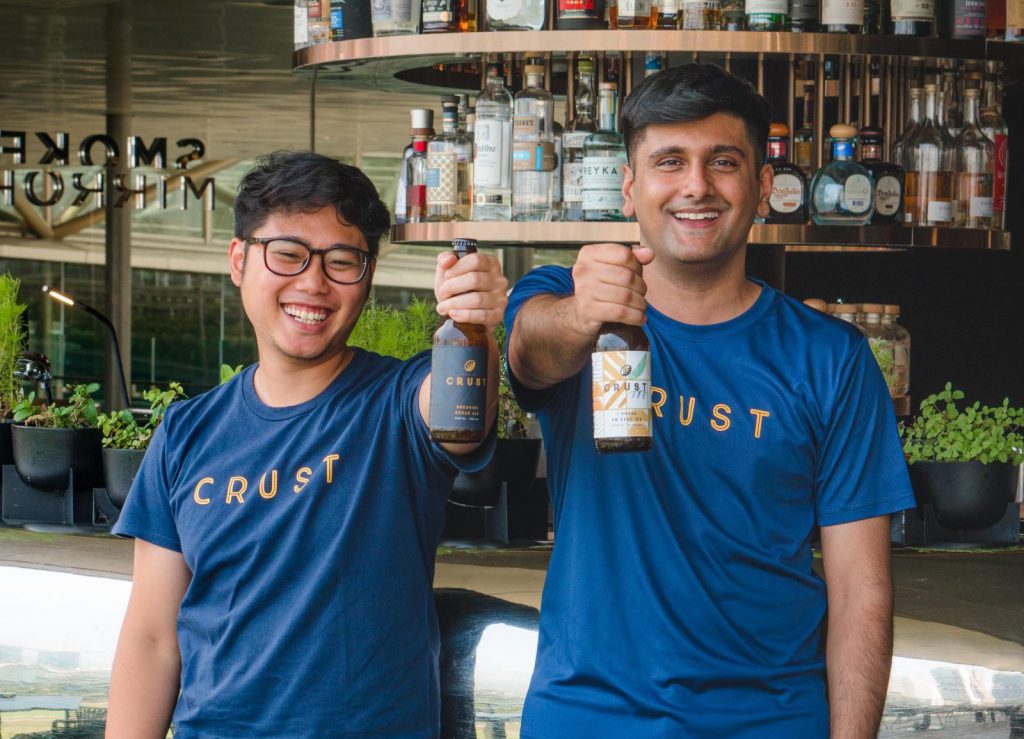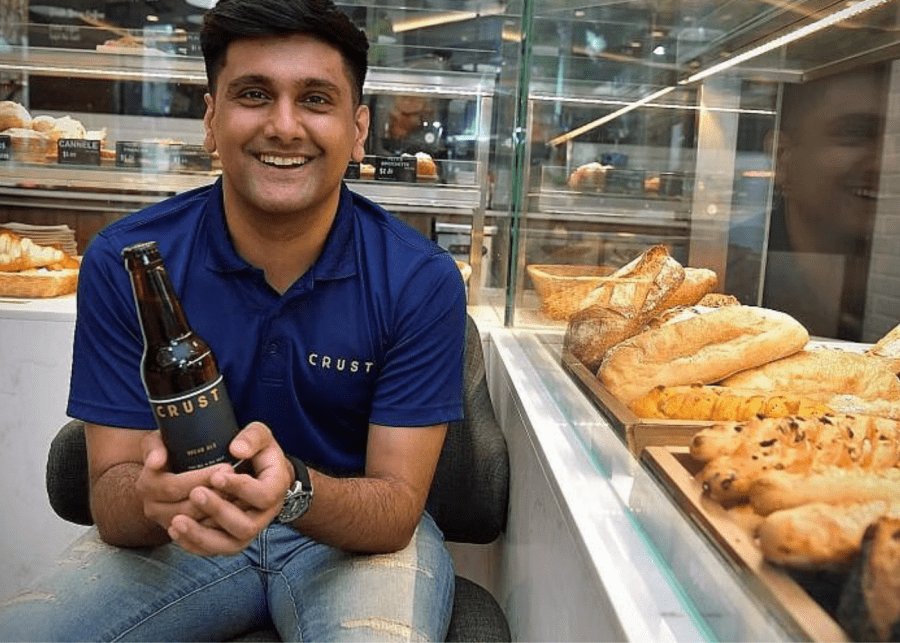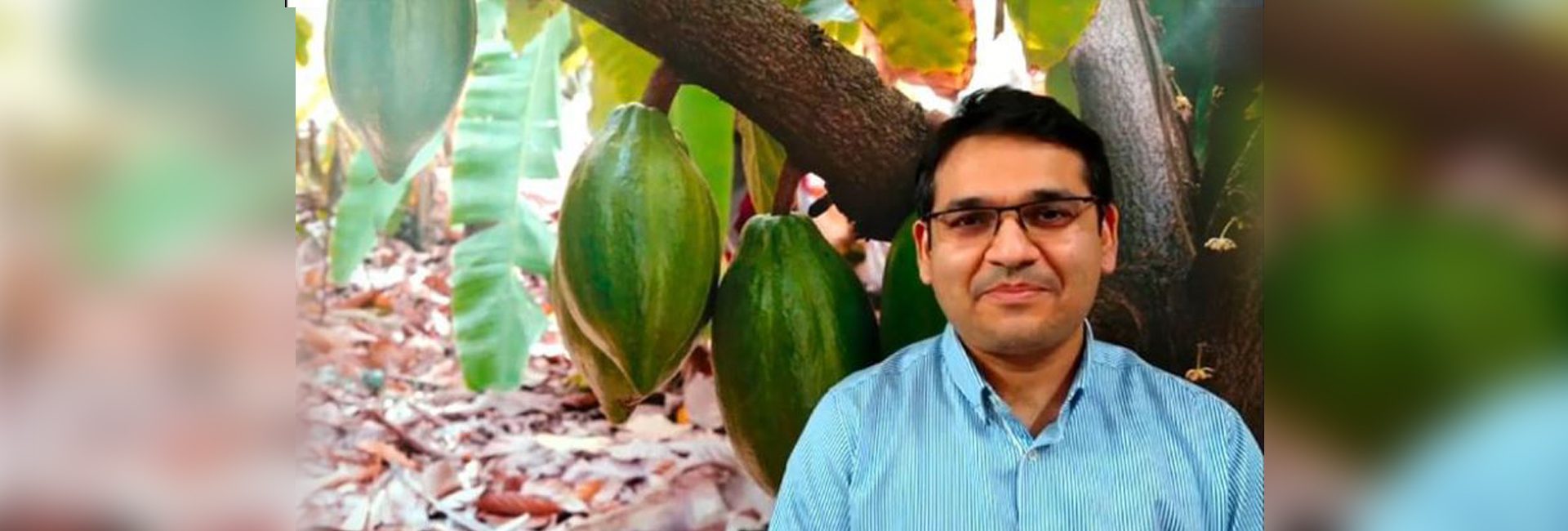(September 7, 2024) Roughly one-third of the food produced in the world for human consumption – approximately 1.3 billion tonnes- gets lost or wasted. To reduce this food wastage, Indian-origin Singaporean Travin Singh started CRUST, a value-based food startup that converts surplus food into beverages. The effort has put the 31-year-old on the world’s top 50 leading gastronomy game changers, who are creating sustainable solutions for the global food and drink industry. “Why grow and consume more when there is so much surplus around the world which can be used as a substitute for your raw material? It is economically friendly, saves cost and you are also upcycling. Sustainability should not be just a buzzword but more about the value-based concept of maximising our resources,” the entrepreneur said.
The idea of upcycling food to create a value-based product nudged Travin to dip his toes into the world of entrepreneurship, after a short stint at the Singaporean Navy followed by a job as a financial advisor specialising in corporate insurance. It was in the navy that he pursued a part-time degree in business management from RMIT University in Australia, and a few years later, hopped onto the entrepreneur bandwagon with CRUST. He was keen to create a value-based company that could create solutions to real-world problems like food wastage and sustainability.
How it began
The notion of reducing food wastage was ingrained in the mind of Travin as a young lad by his mother, who encouraged him to finish all the food on his plate. In case he couldn’t, the leftovers were incorporated into subsequent meals. This formed the basis for Travin’s CRUST, a food-based startup that converts surplus food and food scraps into beverages, thus reducing food wastage. “People have this misconception that you have to be affluent to be sustainable, which isn’t necessarily the case. We did not come from a very rich household with four kids, and therefore had to maximise our resources,” he told aplus.
It began as a homebrewing project after Travin learnt that beer could be made from bread. “I wanted to start a value-based company and started dabbling in bread beer when I found out that ancient Egyptians fermented bread to make alcoholic beverages, to ensure they did not waste anything,” he added. With the help of YouTube videos, he started his initial trials, and even invited a handful of friends for it, which unfortunately produced “very bad beer.”
“I ground the bread up, which was the worst mistake ever. When you do that, you can’t extract enough sugar, and it messes up the taste profile. It was a disaster,” he told Singapore Global Network. Though the results were disastrous initially, it ignited a passion in him to learn more about beer making which took him to California on a month-long trip, visiting 11 breweries across Santa Rosa, San Francisco, San Diego, and Los Angeles. He lapped up as much information as he could on brewing methods and processes and returned to Singapore with a zeal to restart. He attempted home-brewing once more, this time with leftover bread from a small bakery.

CRUST was launched in 2019
The start of CRUST
This worked in the Global Indian‘s favour, and after four attempts, he created his bread beer recipe, and soon after commercialising the process, he dived into the market with the first product – Breaking Bread Ale – a velvety brew with citrus notes and a malt finish. This was the beginning of CRUST in 2019.
Soon more products were added, incorporating new ingredients like coffee grounds, pumpkin and quinoa, and kaya toast. What initially started as a brewing startup has now taken the shape of a food tech company, as CRUST expanded its horizons when it started upcycling food waste like fruit peels into functional drinks under the CROP label. Till now 2536 kg of food waste and loss has been saved by CRUST.
Making a name for themselves
In just three years, CRUST has packed quite a punch but the initial years were an uphill task as many didn’t understand the concept. “They confused food waste and food loss and thought that we were taking food that had been consumed or used by others and turning it into beer. Actually, we were taking surplus ingredients that hadn’t been used or sold. Now that we are three years in the market, more people understood what we are doing through educating them about concepts such as upcycling, and perceptions have changed,” the eco-entrepreneur told Waste Today Magazine.

Travin Singh with CRUST COO Ben P
It began as a B2B (business-to-business) model but Covid 19 pushed CRUST to shift to the D2C (delivery-to-customer) model, which led to its delivery service and a web store from where customers could directly order their brew. “I’m a Punjabi in Singapore, which is a very small minority. I guess being from that background helped me become a lot more adaptable to different situations and scenarios,” he said.
Travin has now expanded his business to Japan and plans to focus on Asia markets first before taking it to the other parts of the world. He opines, “As long as there is food waste in the world, we will always find a way to build a solution around it.”
- Follow Travin Singh on Linkedin





